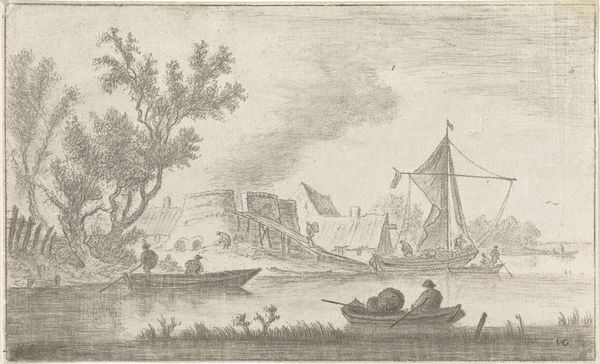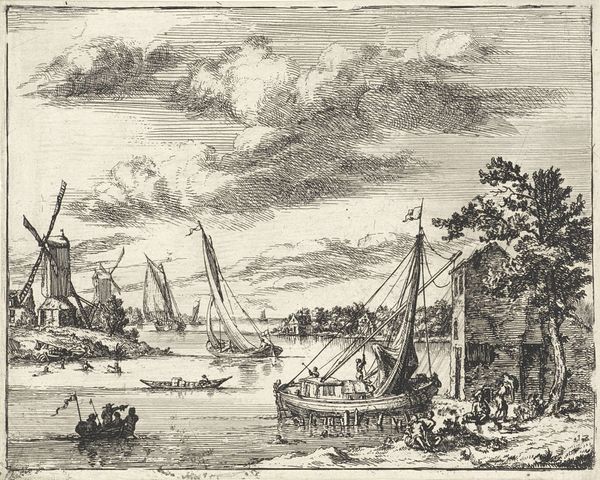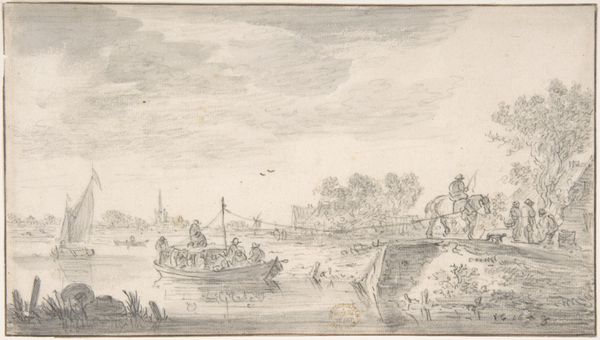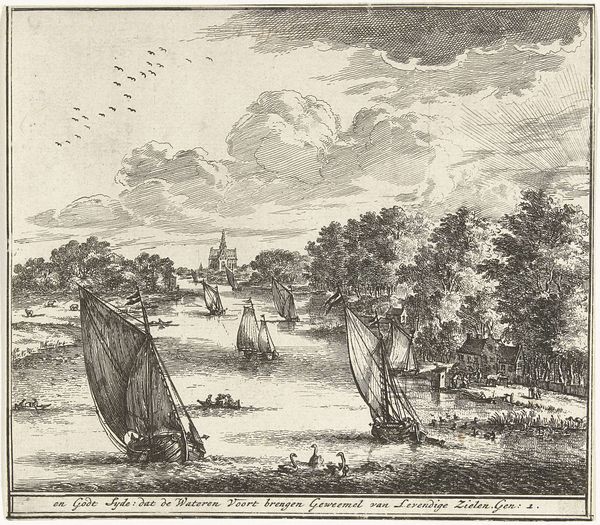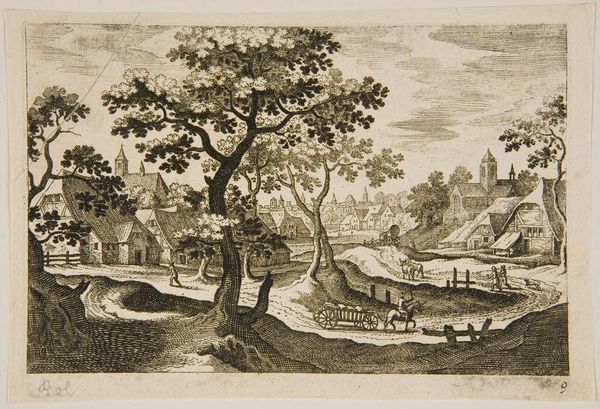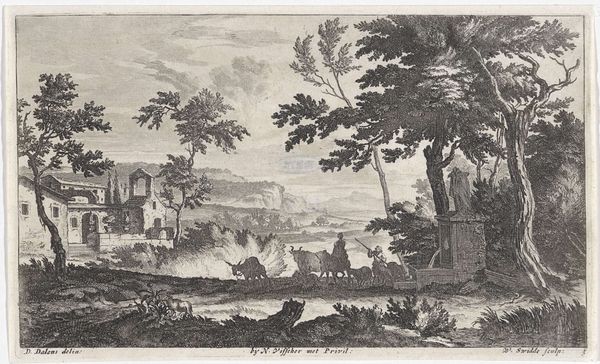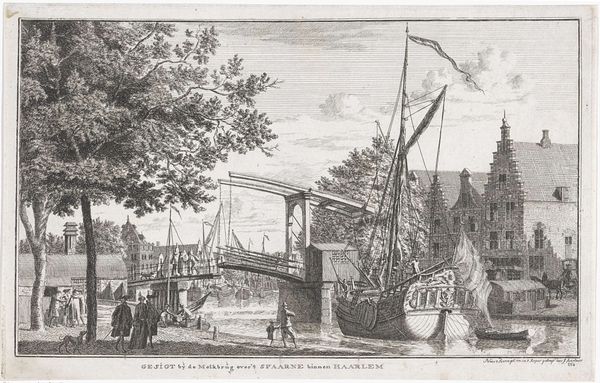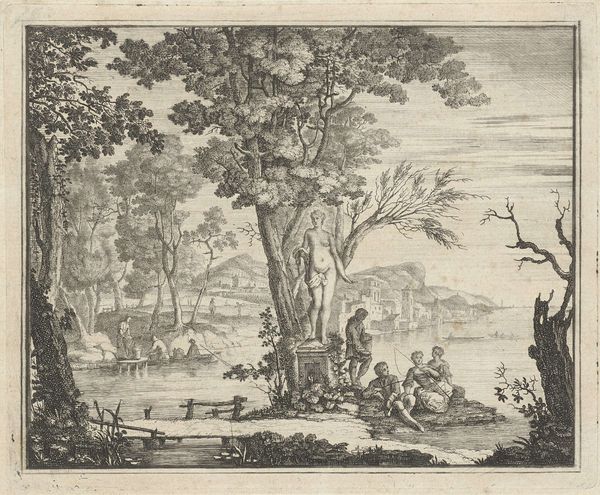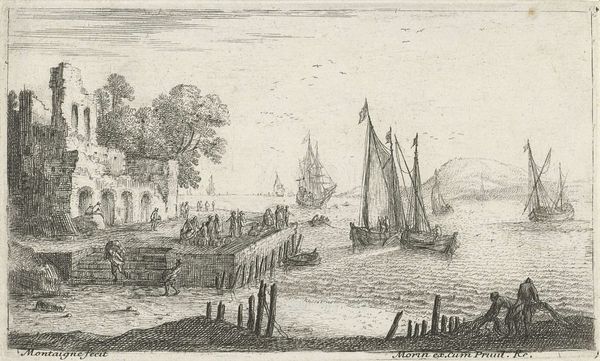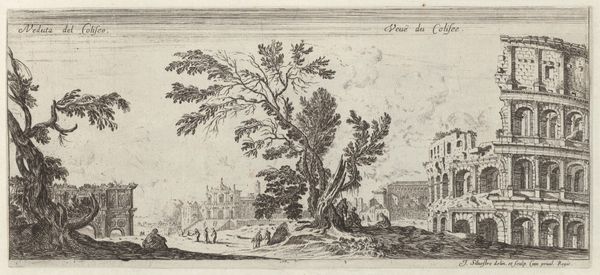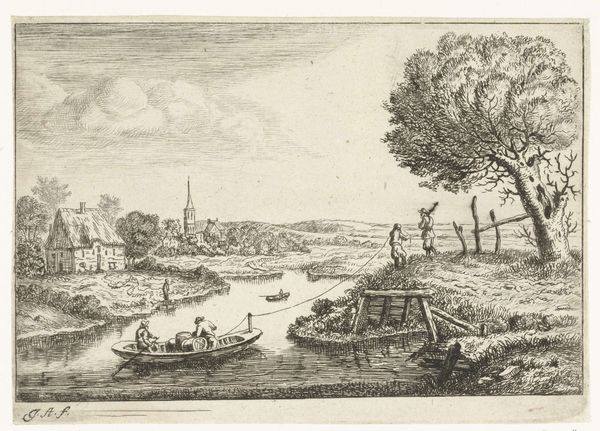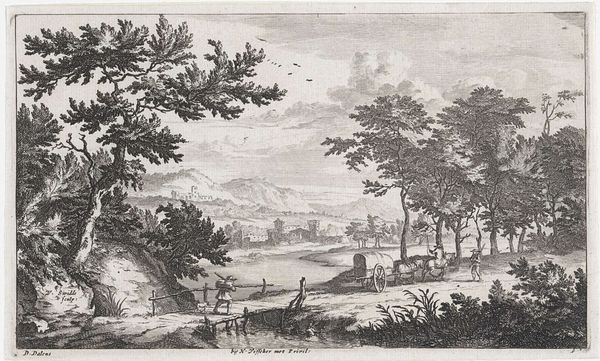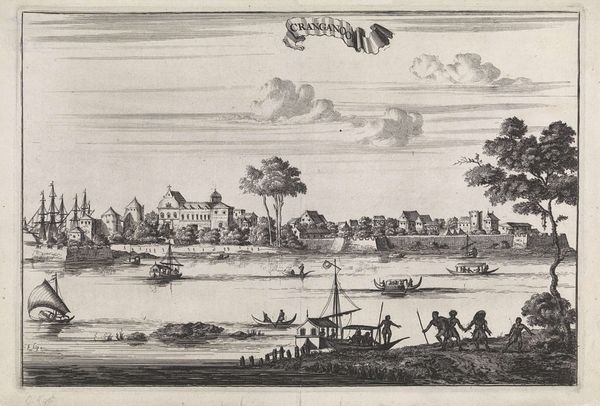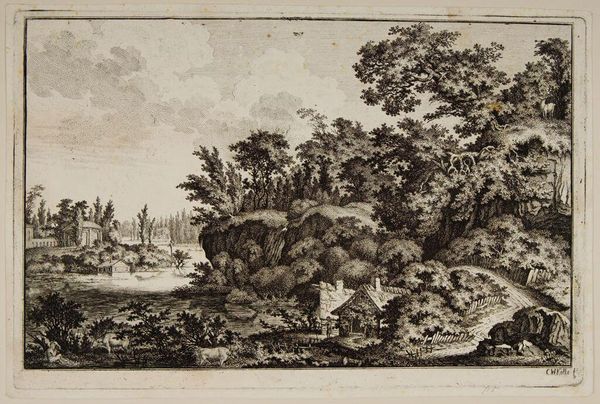
print, engraving
#
baroque
#
dutch-golden-age
# print
#
old engraving style
#
landscape
#
cityscape
#
genre-painting
#
engraving
Dimensions: height 113 mm, width 135 mm
Copyright: Rijks Museum: Open Domain
Editor: So, this is "Rivierlandschap met zwemmers," a landscape from Gerard Melder, made sometime between 1703 and 1754. It's an engraving. It strikes me as quite a busy scene, lots happening with the figures, the boats, and buildings in the background. What stands out to you when you look at it? Curator: What immediately grabs my attention is the production process. Think about the engraver meticulously carving into the metal plate. Each line, each texture—controlled labor. The social context is also essential; prints like this were relatively affordable, allowing wider audiences access to art, reflecting the rise of a merchant class with disposable income and different leisure pursuits, as visible in the representation of play and relaxation. Editor: That’s a fascinating way to look at it. I hadn’t considered the impact of printmaking on art consumption. But does the affordability lessen its artistic value? Curator: Not at all! Instead, it challenges our assumptions about value and art hierarchies. This engraving democratizes art and brings the world outside closer to the people. Consider how Melder blurs boundaries here: the traditionally "high art" of landscape painting, now translated into a reproducible print that could find its way into numerous homes. Editor: I see your point. Thinking about the production and its accessibility, it changes how I view the scene itself. It’s not just a pretty picture, but a record of changing social dynamics and the burgeoning accessibility of art through materiality. Curator: Precisely. The engraving’s success was intimately linked to the development of new industries, rising incomes, and evolving leisure activities, reflecting the social conditions that valued replicability. Editor: This conversation shifted my perspective, I am glad to examine further Dutch Golden Age Art in light of the period's economics! Curator: Excellent! I also enjoyed the possibilities raised during this Materialist reflection; it always is key to appreciate the artwork in its broader production context.
Comments
No comments
Be the first to comment and join the conversation on the ultimate creative platform.
